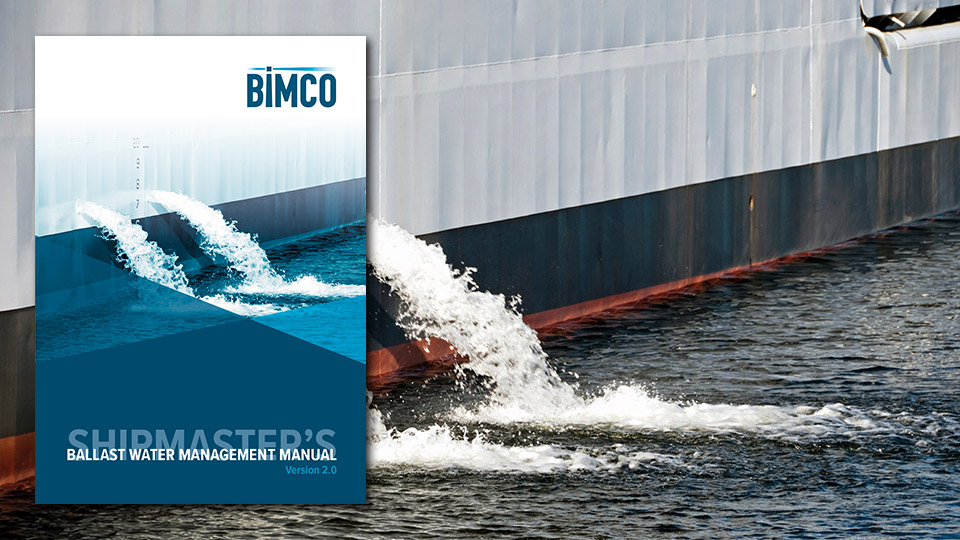Ballast water management regulatory overview and considerations
Overview
Currently, the use of ballast water is an uncomplicated task carried out with the use of gravity and pumps in a simple piping and tank arrangement. This simplicity will soon be changing with the implementation of IMO’s BWM treatment requirements.
The IMO BWM Convention enters into force on 8 September 2017 and shipowners, crews and shore side stakeholders - sooner rather than later - should start planning and implementing the required procedures for the safe and compliant handling of ballast water.
The US Ballast Water Management regulations entered into force in June 2012 with somewhat different implementation schedules, discharge standards and type approval requirements compared to the IMO Convention.
Firstly, owners must prepare their fleet or ship for compliance with both the IMO BWM Convention’s Regulation D-1 on exchange efficacy, and the US’s Ballast Water Exchange standard, which require the carriage of an approved Ballast Water Management Plan and a record of the ship’s ballast water operations in compliance with the exchange requirement.
In some cases, owners might be able to adjust the ship’s compliance date under both the IMO and US BWM regulations by advancing the International Oil Pollution Prevention (IOPP) renewal survey date and /or scheduled drydocking date.
There are currently numerous ballast water management systems, which have been granted type-approval by their respective administrations in accordance with the governing procedures of the IMO BWM Convention. There are, however, concerns regarding the ability of all of these systems to operate in a compliant manner under all conditions and at all times. As well as uncertainties as to how the BWM Convention may be enforced especially with regard to in-port sampling and analysis/testing of managed ballast water.
Owners are urged to exercise due diligence when approaching manufacturers and vendors of BWM systems to safeguard their investments. It is of the utmost importance to request access to all information and data related to the type approval process, including the full shore and shipboard test results. Evidence of multiple failed attempts to reach compliance levels for treated water during test runs is an indication that the equipment may also fail when operating for real on board a ship.
It should be noted that the resources required for preparing a ship’s compliance with the BWM regulations will necessitate a substantial investment as well as add to the ship’s operating cost (OPEX). Depending on the methodology and technology chosen, it is estimated that the overall capital expenditure (CAPEX) per ship involved in BWM regulation compliance ranges from USD 100.000 to USD 3 million or even more.
As with any project, a choice is preferable, so early planning and preparation are recommended to avoid unnecessary or unplanned off hire.
As this is a rather complex issue, BIMCO members are encouraged to gather all the available relevant information to make up a short list of potential suitable BWMS.
The BIMCO Maritime Technology & Regulation Department hsse@bimco.org is available to assist any BIMCO owner members needing help in understanding the regulations and obtaining necessary information prior to making the final choice.
Download RELATED Documents
-
Ballast water management guidance 0.1 MB
Download now -
List of potential considerations needed 0.1 MB
Download now
Feedback or a question about this information?
VPS Bunker Alerts
Veritas Petroleum Services (VPS) publish regular Bunker Alerts based entirely on fuel samples and have kindly permitted BIMCO’s Members to access this information.
The Bunker Alerts are not intended to be an evaluation of overall bunker quality in the port or area concerned, but usually highlight a specific parameter within the fuel which has raised a quality issue.
Latest ice reports for members
Latest piracy reports
Latest industry releasable threats
ELSEWHERE ON BIMCO
Contracts & Clauses
All of BIMCO's most widely used contracts and clauses as well as advice on managing charters and business partners.
Learn about your cargo
For general guidance and information on cargo-related queries.
BIMCO Publications
Want to buy or download a BIMCO publication? Use the link to get access to the ballast water management guide, the ship master’s security manual and many other publications.
About a new business partner
We can help members check new business partners. We also help to recover millions of USD (undisputed) funds every year.




